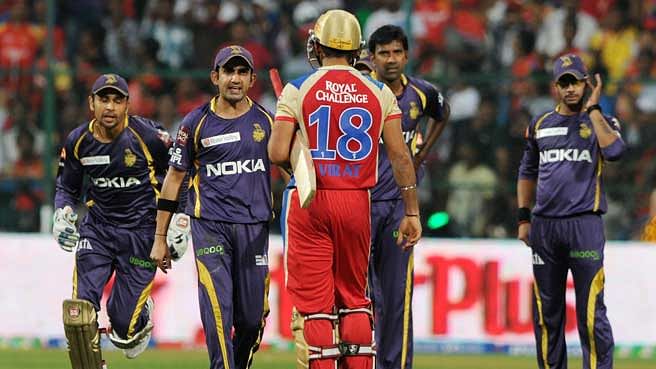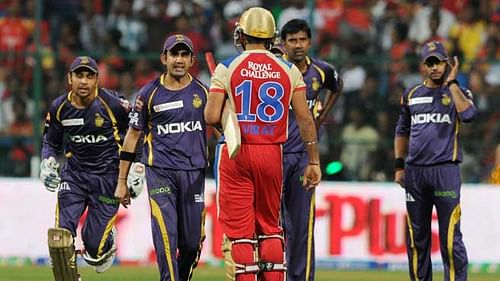
PlayBack 2013 – Final Part – Opinions
Part Four Here
Is Cricket a gentleman’s game?
David Warner punching Joe Root during Ashes, Gautam Gambhir and Virat Kohli getting on top of each other during IPL, Shane Warne and Marlon Samuels getting into a heated exchange during BBL, Ravindra Jadeja annoyed with Suresh Raina during India’s tour to West Indies, Denesh Ramdin falsely claiming a catch against Pakistan in the Champions Trophy and Stuart Broad refusing to walk during Ashes are few instances last year which makes one think whether cricket still remains a gentlemen’s game.
The tag – ‘gentlemen’s game’ – is lost long ago with competition getting bigger and duration getting shorter. Players like Dravid and Kallis reminded us of what it takes to be a sportsperson. Now, with legends retiring, will the sport lose it charm? What punishments can be handed out? Should this be taken in the same sense as fixing?
David Warner was sent away from the Ashes in England to play with the ‘A’ team. Punishment to this duel wasn’t taken in a serious way by Warner as he involved in sledging with South Africa ‘A’ wicket keeper Thami Tsolekile. Warner said that these heated on-field exchanges were friendly banter. Warner was banned and fined.
BCCI warned both Jadeja and Raina for their improper on-field conduct (Jadeja was annoyed after Raina dropped a couple of catches of his bowling. According to reports, Jadeja told Raina that he had probably lost interest in fielding after he lost captaincy). ICC charged WI wicket keeper Denesh Ramdin with a level 2 breach of the ICC code of conduct and banned him for 2 ODIs.
The incident took place at Oval, London, when Ramdin “caught” Mishbah off Kemar Roach. Umpire Steve Davis initially gave out but the square leg umpire Nigel Llong preferred a review. Replays showed that while Ramdin had, initially, caught the ball, he had subsequently allowed it to spill out of his grasp.
In Broad’s case the issue was not with the player’s conduct but with the umpire’s decision being a wrong one which eventually questioned Broad’s character. Michael Holding called for Broad to be banned and urged ICC to view this in the same light as Denesh Ramdin falsely claiming a catch.
One wonders where did the ‘spirit of cricket’ go when it was very well there during Bell’s recall during India’s tour to England in 2011. Lehmann accused Broad of blatant cheating and urged fans in Australia to make sure the all-rounder “cries and goes home” during the return Ashes series. ICC fined 20 per cent of the coach’s match fee for his comments.
How good is the hot-spot and the Decision Review System?
During the first Ashes test at Trent Bridge, on field umpire Aleem Dar ruled Jonathan Trott not out which was reviewed. Third umpire Marais Erasmus overturned the decision despite the fact that the side-on Hot spot image of the dismissal was not available. Trott was given out leg-before despite edging the ball on to his pad.
England were baffled and coach Andy Flower demanded explanation from match referee Ranjan Madugale. Host broadcaster explained that Trott dismissal was missed as it was replaying Root’s exit a ball earlier and Hot Spot inventor apologized for an ‘operator error’ and said that the operator did not trigger the system in order to provide for the Trott delivery. Instead the operator sat on Root’s delivery to offer a replay.
Many such misses by Hot Spot provoked Australia former keeper Gilchrist to comment as ‘starting to understand India’s DRS reluctance’. The return Ashes tour in Australia initially decide to not have Hot Spot but later accepted with real time snicko being employed with Hot Spot.
It’s not just Trott dismissal, the Broad-refusing-to-walk scene irked many and questioned the functioning of Decision Review System. Former umpire Daryl Harper commented on the DRS as “The DRS is flawed. You must remember that it is a system operated by humans. Sometimes they forget to reset the system as in the Trott dismissal. Sometimes they simply replay the wrong delivery to the third umpire, as occurred more than once in the 2011 World cup. If this current system is the best we can come up with then something is wrong. If the reviews were taken out of the players’ hands and given to the umpires then eventually the stronger performing umpires would emerge and be identified by the lesser number of reviewed decisions”.
At the end of the first Ashes test, ICC admitted to 7 umpiring errors but they are satisfied with the increase in the number of correct decisions from before DRS came into play. ICC’s chief executive Dave Richardson admitted that the DRS technology was not foolproof yet and said that ‘the BCCI does have its own reasons for opposing the controversial DRS’. Even in the second Ashes test at Lord’s, Hot Spot failed to pick an edge but third umpire relied on stump microphone.
